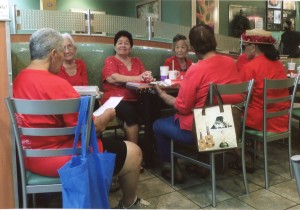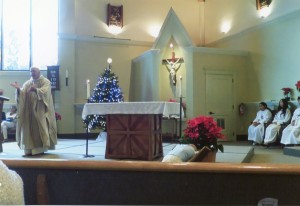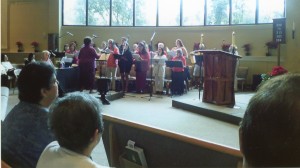#1112 – Dick Bernard: Welcoming Refugees
POSTNOTE March 7: Here is a powerful video from Kathy, who says: “Here is a short video recently completed under IARP [Iraqi and American Reconciliation Project Minnesota] guidance. A refugee story of recent reluctant Iraqi refugee.
Ali lives here in Mpls. now. I find his telling of his story quite impactful.”
PRE-NOTE: If you haven’t already done so, help out Green Card Voices with a donation today. The information is here. Deadline is midnight tonight. POST-NOTE to PRE-NOTE Mar 7: Green Card Voices made its goal!
*
Sunday at Basilica of St. Mary a refugee family was welcomed, several Somalians arriving in the Twin Cities via several years long stay in a refugee camp in Kenya.
The welcome message is here: Basilica Refugees 3-6-16001. I would encourage you to take the time to read the entire message.
Ours is a very large parish, so this was a process covering months. In fact, I’ve written about refugees before. Here are some. Midway down in the December 1 post is another Basilica newsletter.
And, of course, there are differences of opinion. Not everyone is welcoming….
Today’s newsletter brought me back to a post I started in mid-February.
The relevant “snip” from the earlier draft is below and above the * * * for those with an interest.
* * *
Earlier [mid-February, 2016] was the well-publicized dust up involving Pope Francis and Donald Trump about whether a bridge or a wall is the most appropriate way for a Christian to treat immigrants, legal or illegal. The spotlighted case: the Mexican border.
* * *
This flap, as well as the death of Catholic Supreme Court Justice Antonin Scalia about the same time, brought into focus the quandaries of even religious people, of the same denomination, when dealing with issues such as immigration, including completely legal immigration. Those reading will know the distinctions, and probably are on one side or the other of the general issue.
Personally, I noted that this year Pope Francis has declared as a “Year of Mercy” for the worldwide Catholic Church. It is how he spoke at the Mexican border about treatment of immigrants.
Mercy is a call taken seriously by local parishes. I’ve seen it in disparate places, from Waikiki, to the Big Island of Hawaii, to the Franciscan Retreat Center.
At Waimea on the Big Island, Mercy and immigrants was spotlighted two days after Christmas Day. Then back home came another reminder. (both at the end of the post).
*
“Mercy” is being spotlighted this year. And I’m glad it is.
But Mercy is not as simple as it sounds. It is a challenge.
The declaration, as amplified by the Pope Francis/Donald Trump “dust-up” in mid-February, has brought forth memories of a powerful workshop I attended in March, 2005, where I found myself stuck in the role of Mercy, in competition with Peace, Justice and Truth. (We were all “birds of a feather” in this workshop – people who could talk easily with each other about this topic. At the same time, the instructor forced us to choose one of the four words to ally with.
And I was assigned to “Mercy”.
I’ve dusted off my brief recollection from that workshop, and you can read it here: Mercy002 Note how Mercy fared….
A phrase I hear quite often from friends in Peace and Justice work is that “Without Justice, there can be no Peace”.
Where do “Mercy” and “Truth” fit in?
Something each of us might ponder.
Have a great day.



